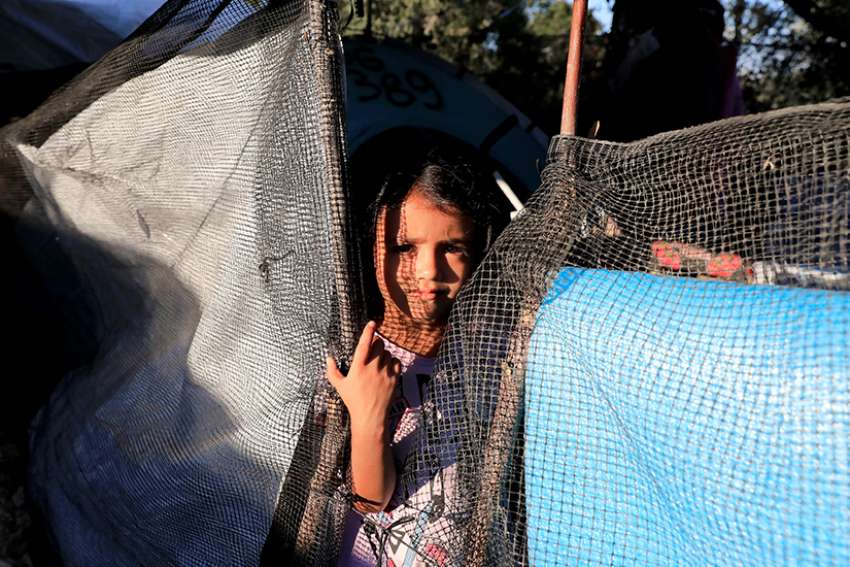“It’s our desire to promote dialogue and not confrontation and isolation; to promote a culture of encounter and not let fear decide,” Czerny told a Nov. 28 Vatican meeting to promote the Global Compact for Safe, Orderly and Regular Migration.
“This is the problem. If fear is in charge, that is a problem.”
The world needs multilateral solutions to problems that are bigger than any one country can handle, Czerny told the Vatican meeting.
“This is how we will implement the compacts… (with) a fully human and fully Christian response to vulnerable people on the run,” he said.
The Vatican played a large role in developing the global compact, which began uncontroversially as a declaration unanimously adopted at the United Nations general assembly in 2016. Since then the original declaration has been developed into a non-binding set of principles intended to extend ordinary human rights to migrants and stateless people. By promoting international co-operation on all forms of migration and hosting an international forum on the issue every four years beginning in 2022, the UN compact hopes to prevent any one nation or region from bearing an unfair share of the burden.
It had been widely expected Pope Francis would attend the compact adoption ceremony in Marrakesh, but last month, amid mounting abuse scandals, the Pope bowed out.
With about 170 out of 192 United Nations member states about to sign on to the compact, Jesuit Refugee Service Middle East and North Africa director Fr. Nawras Sammour said he understands why some people react so negatively to refugees.
“Somehow it’s very normal that people would be skeptical about foreigners, outsiders, strangers,” Sammour told The Catholic Register while visiting Toronto Nov. 29.
While fear and suspicion might be normal, natural reactions to seeing new people on the street who speak, dress and behave differently, no Christian can follow those instincts, he said.
“Welcoming the foreigner or the stranger or the outsider — it’s a biblical value. We are Christians, so we have to take that risk,” he said. “It’s a risk. I’m not naive. Either we take that risk or not. But not taking that risk is not biblical.”
The Jesuit priest is himself a Syrian refugee who watched his own small, poor country take in nearly 1.5 million Iraqi refugees between the 2003 American-led invasion of Iraq and the 2011 beginning of Syria’s civil war — launching an even larger refugee crisis. In comparison, the few thousand refugees who enter Canada in any given year seems like a very small problem.
“I’m not a Canadian. But I can understand that reaction (against refugees). But it’s not a healthy reaction I would say,” said Sammour. “Either we try to open up and engage in the dialogue, or it’s going to get more and more violent if there is not this dialogue.”
As anti-immigrant rhetoric has escalated in Europe and the United States, the once uncontroversial proposal to co-ordinate migration efforts internationally has become a flashpoint. The United States, Italy, Hungary and Austria will skip the Marrakesh adoption ceremony. Bulgaria, the Czech Republic and Israel are also good bets to pull out.
The work of the Jesuit Refugee Service continues, light years removed from the culture-war politics of border walls and fear-mongering.
“What is really good in the JRS, it’s that aspect of accompaniment,” Sammour said. “We know our people, the people we serve. We try to be with them and for them. This is the characteristic of our work. We are not only suppliers of services.”
Though a relatively small agency compared to many of the global charities to be found working in refugee camps around the world, the JRS is particularly valued for its contributions in education. Thousands of young refugees in Lebanon, Kenya, Colombia and more than 40 other countries have been able to acquire basic literacy, high school credits and even university courses through the JRS.
The real solutions to global migration problems will come in the form of peace, development and democracy in the poor nations south of the equator, said Sammour. If people can’t find those basics in their home countries they will head somewhere else, he said.
“They are seeking justice. It is not just to take all the wealth and the resources of Africa and then not accept Africans in Europe or the States or in Canada,” he said. “It’s now an international and universal problematic, which reflects very much a problem of development, a problem of justice.”


